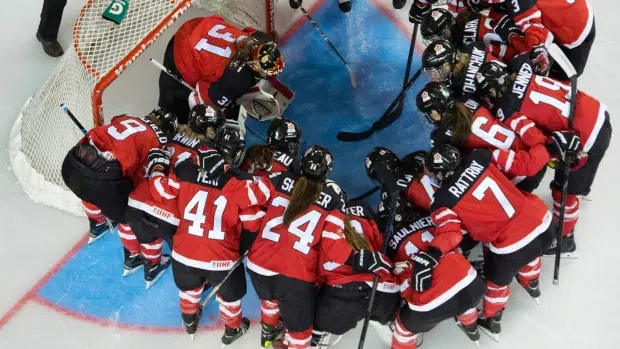
World championship gold has been elusive for Canadian women’s hockey team
KAMLOOPS, B.C. — The Canadian women’s hockey team has won four straight Olympic golds, beating the United States for three of them. Why can’t they do the same at world championships lately?
“That’s a good question. We’ve got a week to figure out how to do it,” Canadian forward Hayley Wickenheiser said.
The Americans downed Canada to win five of the last six world titles, so they are subject to the reverse question. Why world titles and not Olympic gold?
“We get that question a lot to be honest,” U.S. captain Meghan Duggan said. “You look at the last handful of world championships. I think we’ve won the last five our of six and we all know how the Olympics have gone.


